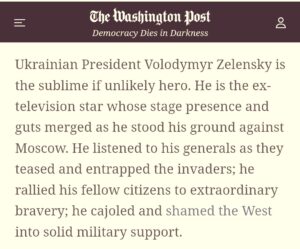Thoughts on French Riots and What Caused Them
France has been rocked the past few days by riots and unrest in the wake of the killing of 17-year-old Nahel Merbouz at a traffic stop.
I don’t condone the riots and violence of the protesters (and Nahel’s grandmother agrees), but I cannot deny a certain amount of sympathy for the mostly young Arab and Black people of cities like Paris who have long complained of police discrimination. Since their complaints are basically being ignored by the authorities (a charge confirmed by the UN) the politicians cannot escape responsibility for creating the circumstances which lead to these riots.
Now French politicians, including President Macron, accuse social media of stoking the current riots and unrest.
It seems that what they are referring to is the wide distribution, via TikTok, Snapchat, Instagram, and other platforms, of videos which document police discrimination and brutality towards non-white citizens, such as the video giving the lie to the claim by police officer Florian M. that he shot Nahel in self defence; it shows Nahel fleeing the scene rather than attacking the officers by driving towards them.
Nahel was not, of course, an innocent; but in our societies driving without a license and not stopping for a traffic stop are not supposed to be crimes deserving capital punishment.
That Mr. Macron and others apparently perceive the riots and the wide distribution of such videos as more problematic than what these videos show speaks volumes.
Florian M. has been charged with voluntary homicide; look forward to more rioting if he should be acquitted or convicted of a lesser offence.
Undoubtedly France has a massive problem with “foreigners”, i.e. people from different cultures. as do other European countries including my own, Austria, and I am not letting any of them off the hook when it comes to dealing with them fairly and equitably. But France’s problem, unlike Austria’s, is home-grown; it is the result of France’s colonial past. It is, so to speak, the sins of the fathers being visited on the children. All efforts to deport, incarcerate, or otherwise dispose of all these people from North and Sub-Saharan Africa will fail: the “ethnically pure nation-state” is an unrealistic pipe dream, and if the French, from the top politicians to the ordinary citizens, do not learn to live peacefully with all ethnicities and cultures in their country, I fear that we will see even more of such scenes in the future.

